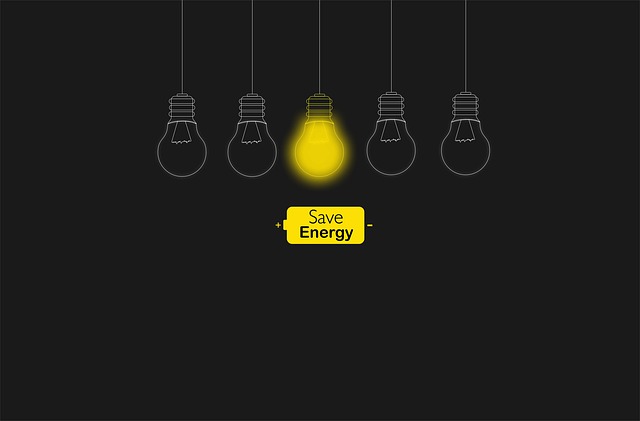Lithium Ion Battery Price Forecast
Oct 31, 2019 Pageview:1929
The majority of battery experts agree to the fact that prices of energy storage will drop in the coming years, but they do not agree on how long it will take, nor on the speed with which this drop in prices will happen. This drop in prices is significant, as the drop in the price of batteries could have far-reaching effects for every sector and for the society itself. Particularly, when batteries become cheaper, this allows a wider adoption of previously mechanical and now electric machines, like electric cars. And this will most likely disrupt the various sectors like the transport, energy, and oil or petroleum sectors.
To shed light on the debate, there is a detailed bottom-up "should cost” model. This model estimates and predicts the possible price evolution of lithium-ion batteries up to the year 2025. The analysis shows that the price of a kit of the car battery (of lithium ions) could drop from around $500 - $600 per kilowatt-hour (kWh) to around $200/kWh in 2020 and further reduce to about $160 by the year 2025. The gasoline prices in the United States is at about $3.50 per gallon, so there could be a reduction in the price of cars if automakers buy batteries below $250 per kWh, for vehicles running on the advanced internal combustion engines.
How much does lithium-ion battery cost?
Model 3 of Tesla, is the company’s cheapest car model, and the starting prices are around $35,000. This car is powered by a 50 kWh battery, and this battery costs about $ 8,750, or 25% of the total price of the car.
It is still incredibly affordable compared to the not too distant past. According to the financial magazine, Bloomberg New Energy Finance, on the average, the global cost of lithium-ion batteries in the year 2018 was about $175 per kWh, a sharp decrease when compared to the $1,200 price per kWh in 2010.
Will lithium batteries come down in price?
According to a new report by Navigant Research, the cost of lithium-ion battery cells could drop to $76 per kWh by the year 2030, compared to about the $139 per kWh this year.
The Colorado-based company has released its latest market data on 'Advanced battery and energy storage pricing trends'. The Author Alex Eller is a senior research analyst and told Energy-Storage news that “the report explores a range of energy storage technologies ", but that the major focus is on li-ion batteries as utility-scale grid storage.
The Prices of lithium-ion batteries have fallen further in 2019, as we saw it decline (albeit, slower than expected) in 2018. And this slow decline is a result of the fact that there were shortages in supplies.
Logan Goldie-Scott, head of BloombergNEF's energy-storage analysis, said in March that a "mid-size" lithium-ion battery could cost only $62 per kWh by the year 2030. He even noted that some companies may even "undershoot" and sell their packages at a cheaper price than what is being forecasted, but that others, may sell theirs at higher prices.
The cost of lithium-ion batteries can fall even more rapidly over the next two decades. The major reason is that there will be mass production of the products, as needed to meet the demand due to the expected sharp increase in the number of devices using battery power, especially electric vehicles. This is the conclusion of a new science-for-policy report (JRC).
The report shows that a price reduction of at the very least 50% from 2030 down to about 75% in 2040 is possible if the strong growth in demand continues. Due to indirect effects, battery storage applications should also benefit from the significant cost reductions, albeit slower.
Lithium-ion batteries are therefore forecasted to be at least 50% cheaper over the next decade
Lithium-ion battery technology charges ahead
Most experts agree that the prices of energy storage will fall drastically in the coming years. But there is no agreement so far on how far we will wait, or the speed of the fall. Some have predicted a gradual decline over the next few decades, while others predict a drastic fall in price over the next 10 to 15 years. Regardless of the speed or the rate of the fall in prices, one thing is for sure, the price of energy storage will fall, and there will be lots of options to the end-users. As you have known, Lithium-ion batteries are leading other batteries in the energy storage market. So if energy storage becomes cheaper, it is needless to say Lithium-ion batteries will be at the fore.
The analysis shows that the price of a full set of automotive lithium-ion batteries could fall from $500 or $600 KW/hour to around $200 kilowatt per hour by the year 2020, and then to about $160 per kilowatt hour2025. This will drag the prices of commodities down because there will be less reliance on the use of gasoline engines. Devices making use of electricity will increase and become cheaper due to mass production and adoption.
The application of lithium-ion batteries in several sectors will be on a larger scale, and the environment will be better for it since there will be less emission of carbon and more use of renewable energy.
To obtain the price reductions to the magnitude forecasted in this article, the industry players need to increase their scale of production, reduce component prices and also commercialize the capacity-boosting battery technologies which are emerging from laboratories nowadays.
These goals will not and do not promise to be easy to achieve, but the consumer electronics industry is leading the charge with the rapid advancement of consumer lithium-ion batteries. Also, the other sectors, which include the semiconductor and solar PV industries, have already put in place ways for battery players to achieve the required savings. As the future evolves (and if it does according to our price forecast), the reduction of price in energy storage will affect a variety of industries, ranging from transportation to petroleum to health –which is very good for the average man. Consequently, energy will be more affordable and accessible and there will be more money to keep investors and consumers happy.
- Prev Article: Lithium Air Battery-Operation, Comparison and Breakthrough
- Next Article: Solar Powered Li Ion Battery Charger
Leave Message
Hottest Categories
-
Hottest Industry News
-
Latest Industry News











